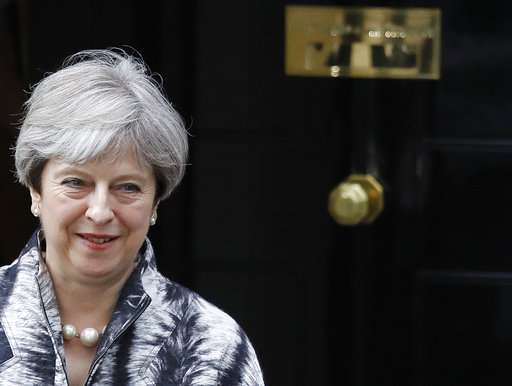UK, France: tougher action on tech firms to fight extremism

Britain and France plan tougher action to tackle online radicalization, as they announced Monday a new joint campaign to stop the internet from being a safe space for terrorists.
The cooperation, unveiled ahead of counter-terror talks Tuesday with French President Emmanuel Macron, includes exploring the possibility of creating a new legal liability for tech companies if they fail to remove content.
"We are united in our total condemnation of terrorism and our commitment to stamp out this evil," May said ahead of the session.
May has been pressing the tech companies to do more to thwart the spread of terrorist content on the web. In a speech following the London Bridge attacks, she insisted that "we cannot allow this ideology the safe space it needs to breed.
"Yet that is precisely what the internet - and the big companies that provide internet-based services - provide," she said.
But tech experts wondered aloud what kind of regulation might be proposed, given that Britain's laws are already among the toughest. A law known as the Snooper' Charter gives authorities the powers to look at the internet browsing records of everyone in the country.
Among other things, the law requires telecommunications companies to keep records of all users' web activity for a year, creating databases of personal information that the firms worry could be vulnerable to leaks and hackers.
Cynthia Wong, a senior researcher on the Internet and Human Rights at Human Rights Watch said no one should be surprised that smart phones and social media are used in attacks, as they are the "tools of modern life."
"The problem here is that it's like blaming truck manufacturers or knife-makers," she said.
She said that it's not as if tech companies are unwilling to help. "Is not as if they are doing nothing .... The problem there is the sheer scale of it—hundreds of hours of video are posted every single minute," she said.
Part of the problem is also that no one is quite certain what the British prime minister intends to ask for. Censorship is a fraught issue in any context.
"I think the practicalities of doing this are not only extremely problematic but potentially quite frightening from a civil liberties point of view," said Martin Moore, the director of the Center for the Study of Media, Communication and Power at King's College London. The public needs to know what it means when she says 'enough is enough.'"
Daniel Castro, the vice president of the Information Technology and Innovation Foundation in Washington said one has to wonder how sustainable these ideas are because they are driven by fear. He pointed out that there are all sorts of places on the internet "where you can put things up" without being able to take it down.
Rather than beating up on the tech companies, the more sensible approach is to work with them and give support to the tools they are developing to counter terror. After all, it is tech companies and academics who are leading on the effort to combat radicalization on line.
"I think that the most disappointing part of this is that the government should be a partner with the private sector," he said of May's rhetoric last week. "This is not how you bring partners to the table to come up with a solution. It's delaying any positive action."
© 2017 The Associated Press. All rights reserved.



















